The Guardian of Nature is a beautifully hand-drawn game about the balance and interconnectedness of nature. You play as Henry, the island’s designated Guardian of Nature, who can change sizes to explore ecosystems of different dimensions. The writing style is inspired by fairy tales and children's books, with simple rhyming verses, based on actual real-world nature facts, but in short poetic form rather than scientific language. As of writing, only the first episode has been released, with two more to come; so that’s what we will be discussing here.
Translating rhymes
Although creating interesting rhymes is always a challenging task, the verses of The Guardian of Nature have no meter (i.e. a rhythm structure that defines the number of syllables in each verse), so the only thing to worry about was the final word. They are also quite long, which was very helpful since the Portuguese language uses longer words more often than English, therefore making my version fit in the designated space wasn’t too much of a hassle—but more on that later.
Rhymes in English have a lot more room to be interesting, seeing as words with different spellings can have the same pronunciation. In Portuguese, what you write is what you read, at least most of the time. One of my favorite musicals, Wicked, has an absurd amount of brilliant rhymes to pick from, but just to illustrate this point, here’s one: “There are precious few at ease/With moral ambiguities”. Basically, the more unexpected the rhyme, the richer it is.
Having said that, I wanted to avoid making too many obvious rhymes. If not different spellings, I tried to, at least, use words with different grammar classes wherever I could. See some examples below:
Henry foi o escolhido para proteger a ilha por inteiro, (adjective) desde o ponto mais distante até o seu próprio canteiro. (noun)
Nos micélios que conectam tudo por baixo da terra, (noun) descobriram um fluxo de energia que nunca se encerra. (verb)
Das profundezas do oceano até o lago mais raso, (adjective) onde há água, há vida, e não é por acaso. (adverbial locution)
When I studied about the different types of rhymes, I learned that those where the stressed syllables are exactly the same (i.e. starting from the consonant or consonant cluster before the stressed vowel) are called identities, and some people don’t consider them real rhymes. A good example in English would be the words revive and survive. However, that can be a controversial topic, since Shakespeare himself used identities every now and then.
That is why, when encountering identities like “energy/sinergy” in the original, I did not hesitate in using their literal translations, “energia/sinergia”, which also rhyme. Too easy? Maybe. But my job is to translate, not completely rewrite the source text. If I can keep it close to the original, why wouldn’t I? I believe most strategies are valid in certain situations, as long as you know not to overuse them.
I was actually surprised at how much of the literal meaning I managed to keep, only rearranging sentence structure to make the rhymes sound natural and cohesive. I think the furthest I went with the adaptation meaning-wise was the following:
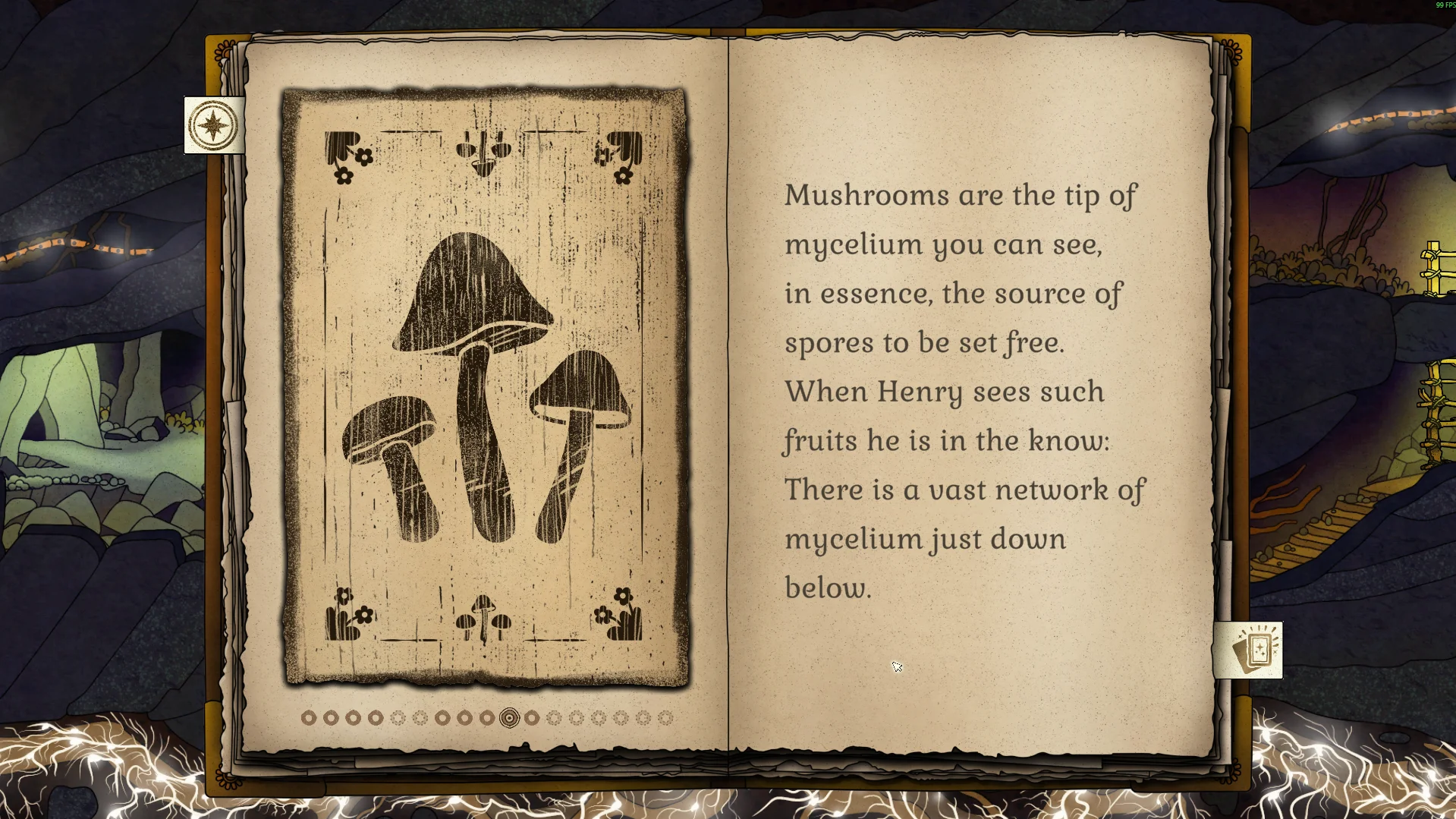
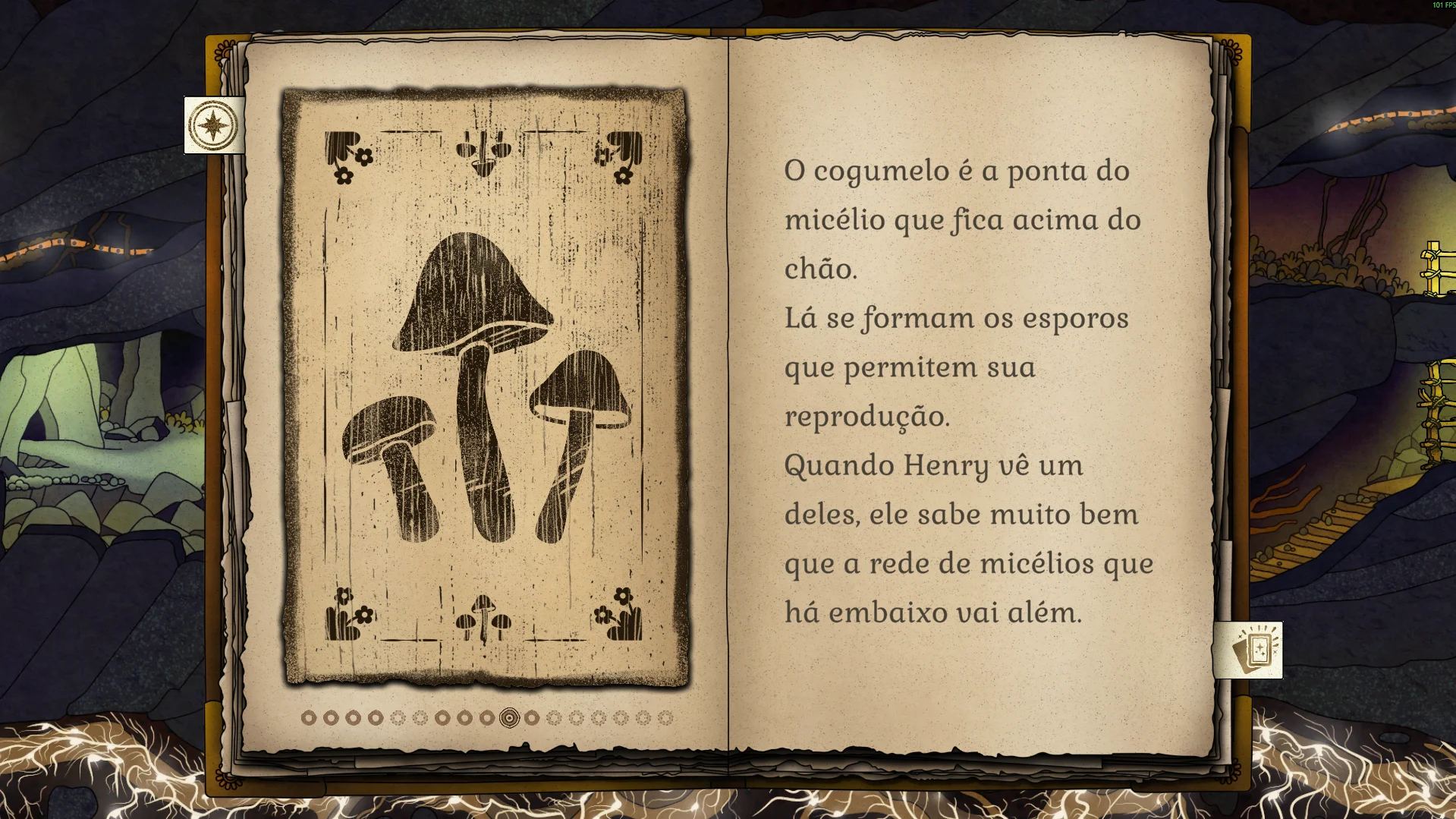
The source text only relays the information that spores are formed in the mycelia, and then set free; my version says that they are formed in the mycelia and are responsible for their reproduction. It was easier to rhyme this way, and even though it’s a different information, it does a good job at explaining what spores are, which some players might not know.
It is a well-known fact that Portuguese verbs are really easy to rhyme with each other; most of them end in ar/er/ir. Because of that, it’s really common to twist a sentence around to end it with the verb. That can be okay in some cases, but at this point, it’s an extremely overused “technique”, and it kind of makes you sound like Yoda. So, I avoided doing this with all my might, only making one small exception to add impact to a scene. However, seeing as it is the final scene in chapter 1, I can’t spoil it. Let me know if you find it!
One last thing I considered was keeping a nice cadence to each verse, even though I didn't have to follow a meter. I figured parents will play this game with their children and read the subtitles out loud for them, so they have to feel nice to say. I’m sure there are theories to explain what makes for better cadence, but this time I relied solely on my native speaker instincts.
The interaction between text and image in gameplay
When you work with game localization, you have to understand that the text is almost never isolated from the bigger context. It is deeply intertwined with the visuals, and it is absolutely essential to understand that interaction before you even start to translate. In this case, the book pages we find along the way are not only informative; sometimes they give us slight hints about what the next step should be in solving a puzzle.
This page of Henry’s Nature Book, which the player finds near a sleepy worm blocking the way to a door, subtly points to water drops making worms move:
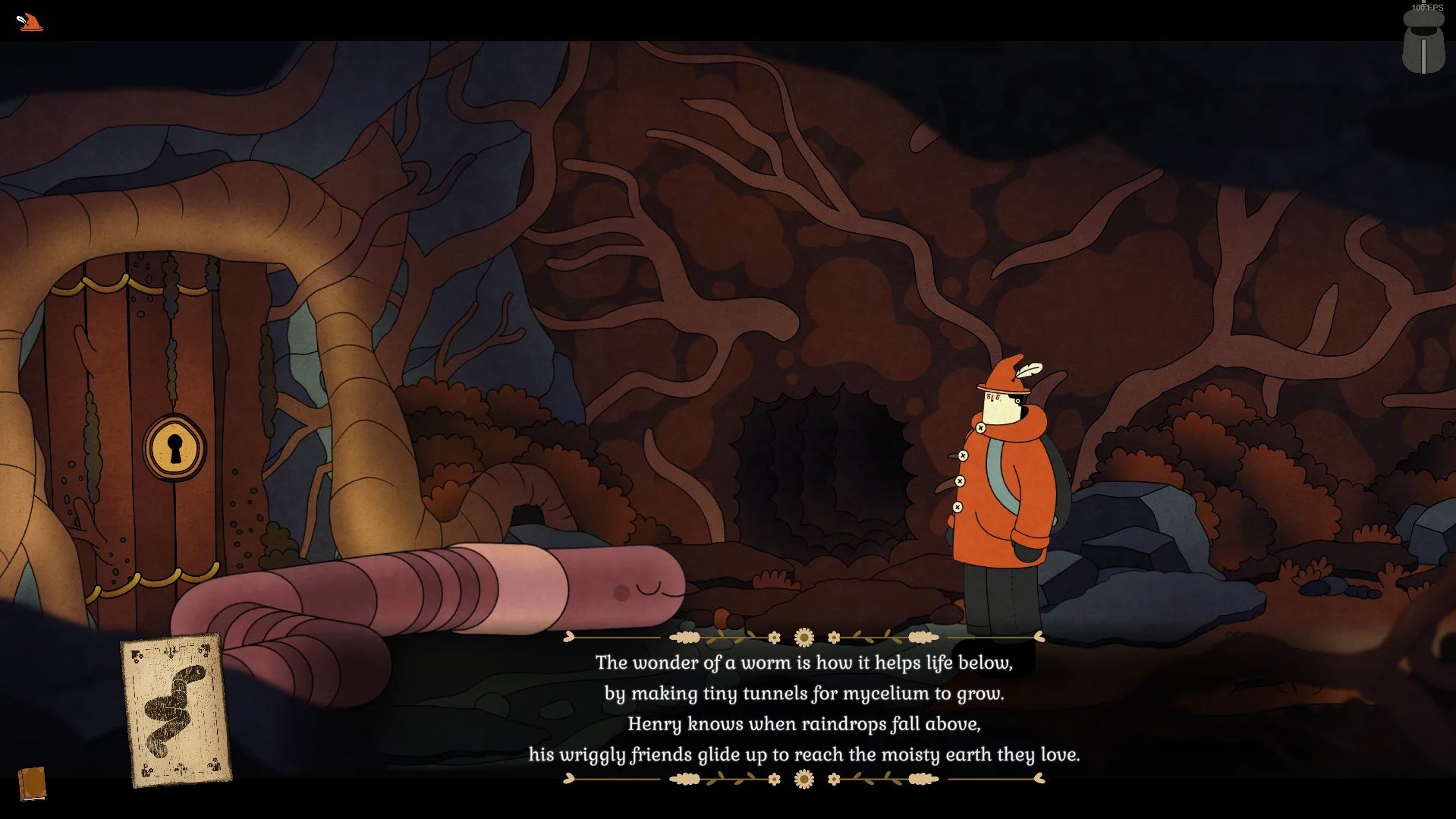
So the information I had to convey in these four lines was:
- Worms help the ecosystem
- Worms make tunnels
- Mycelia grow in those tunnels
- Worms like mud
- When it’s wet, they go up to the mud (meaning: they might get out of your way!)
- The water must come from above (meaning: the solution is on another screen!)
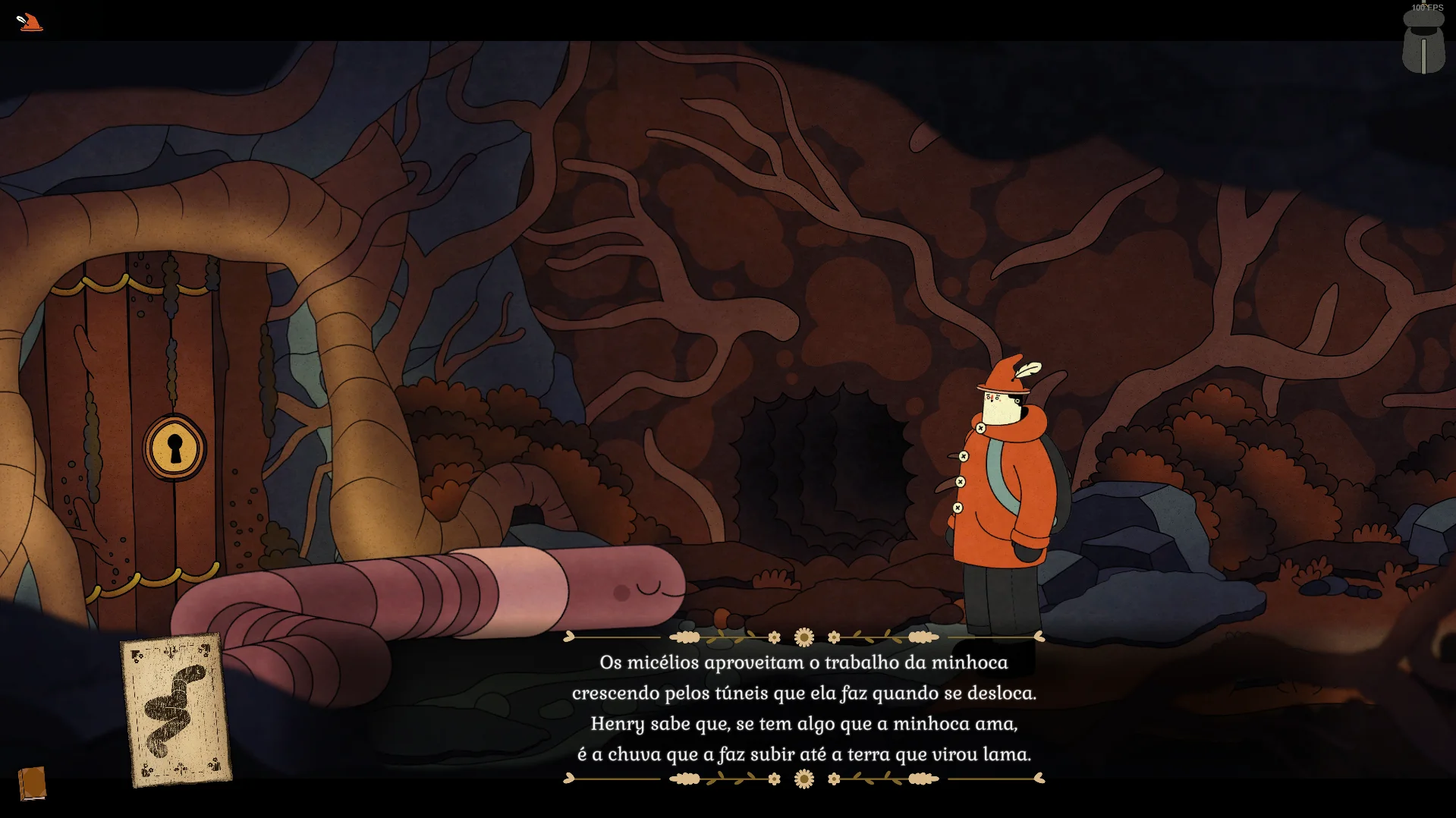
Like I said, there was no meter, but the space was still limited. Especially considering that sometimes you have to switch things around or add a few words to create a cohesive sentence. Another example of this is the page found by the water, which references the flowers in Henry's garden and how they also need water to flourish:
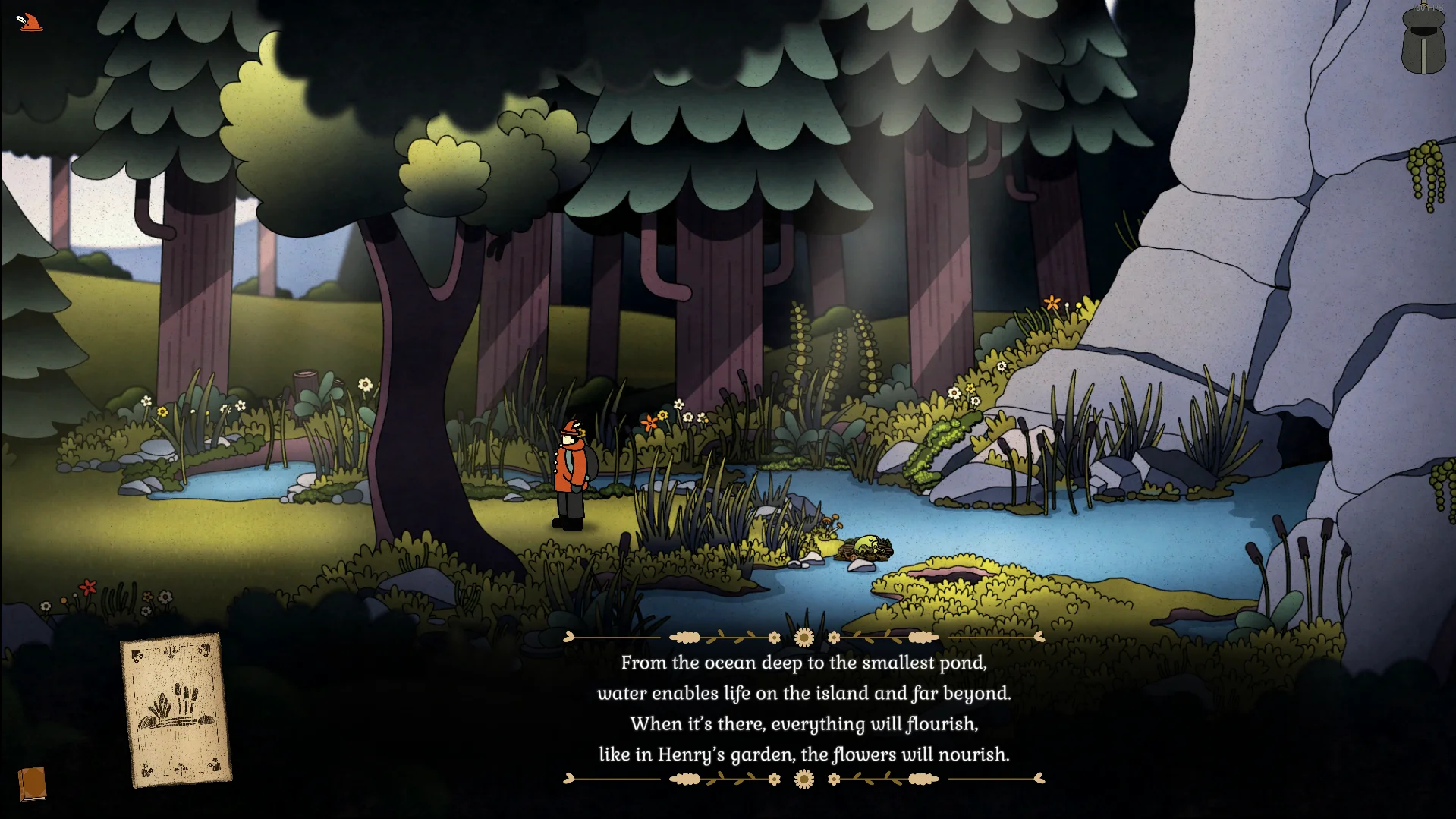
As you can see, both of these examples are (somewhat unexplicitly) telling the player to go water Henry's flowers, so that there's mud and the worm will feel compelled to move, letting you pass. Puzzle games can be overwhelming without tips like these, but it's still important that the answer is not too obvious, so the player can feel satisfaction when they figure it out. And now, in PT-BR:
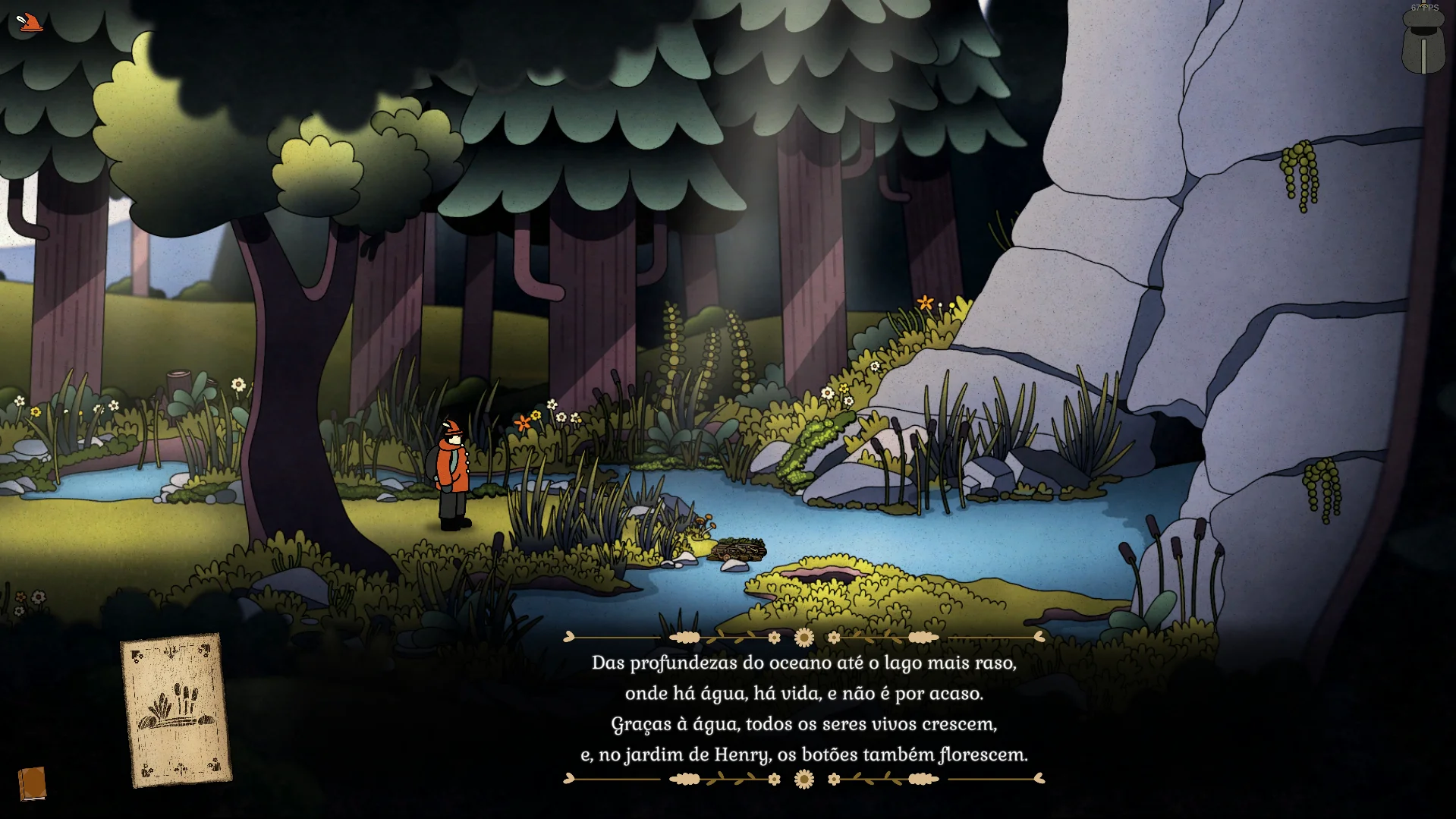
If you want to see more of my work on The Guardian of Nature, go ahead and check it out on Steam. It’s still in early access, but if you buy the first episode, you will get the rest of the game for free when it comes out.

